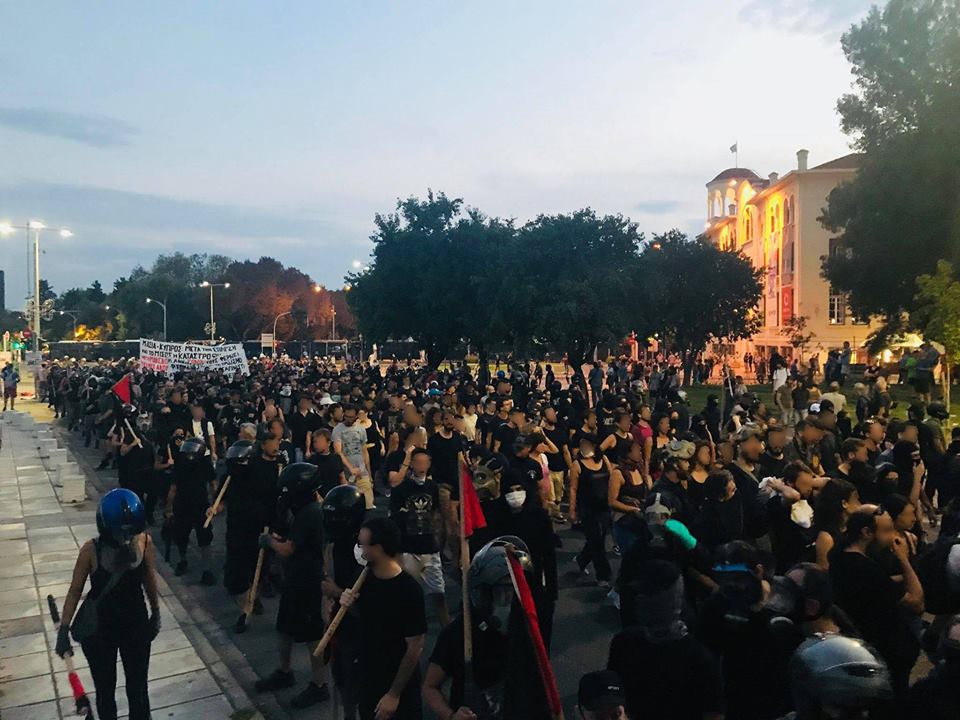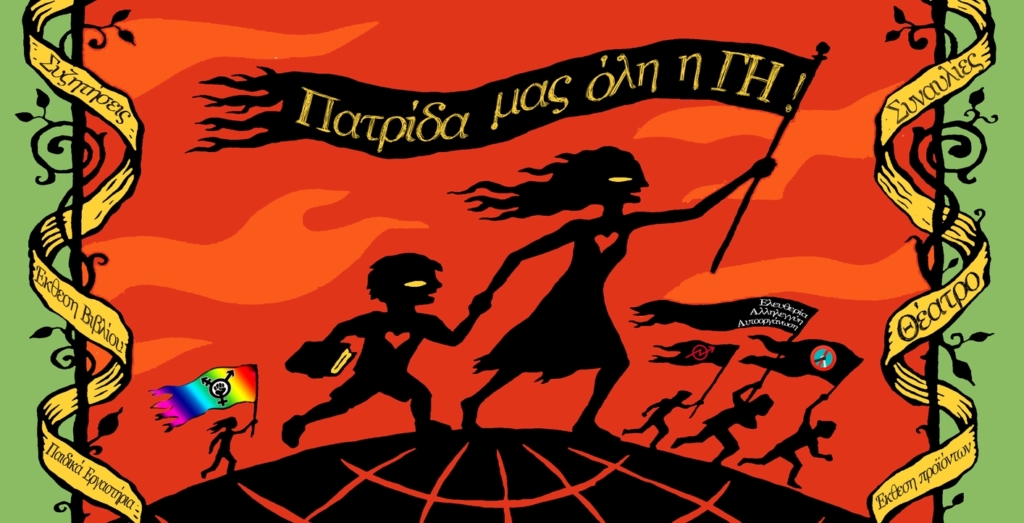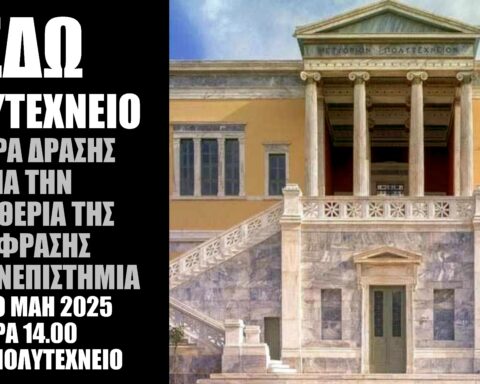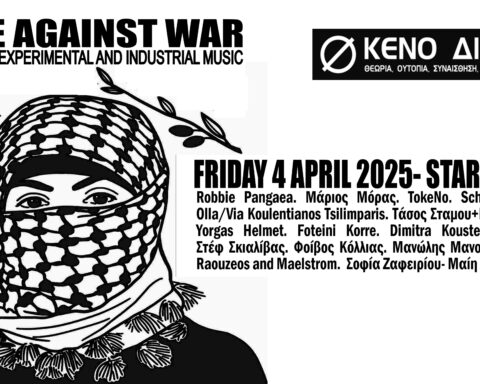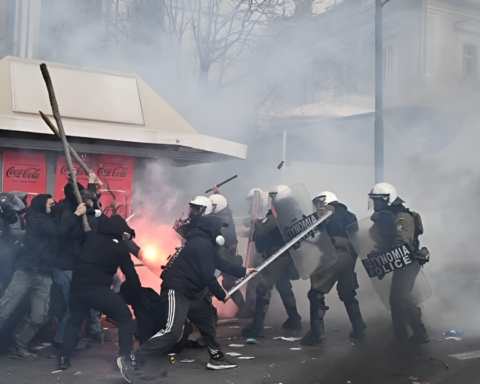A specter appears to be haunting Europe, but it does not wear red. The recent European elections are the last in a series of electoral results indicating that the ghost has taken a decisively rightwing turn. Of course, “populism” is still used widely by politicians and intellectuals in order to pinpoint this ominous presence that is said to threaten our liberal democracies. However, along with the dubious analytical merits of the term and its questionable political uses, it is becoming increasingly difficult to ignore that the political forces who are on the rise today across Europe have a more concrete ideological identity, which puts them firmly on the (far) right of the political spectrum. This is not to deny that parties such as Rassemblement National in France or Lega Nord in Italy deploy tropes that have come to be identified with populism, notably the use of the “elite/people” binary as a potent demarcation of political reality. Yet, this is effectively integrated into a politics whose defining components are unmistakably rightwing: nationalism, islamophobia, anti-immigration, valorization of order and security. On the other hand, leftist political forces, who have also been accused for the sin of populism, have suffered a notable defeat in the recent elections, this being again part of a wider regression that the (radical) Left has suffered in recent years. If these contrasting fortunes call for an explanation, the term that has been persistently used to lump the far-right and the far-left together is of limited value.
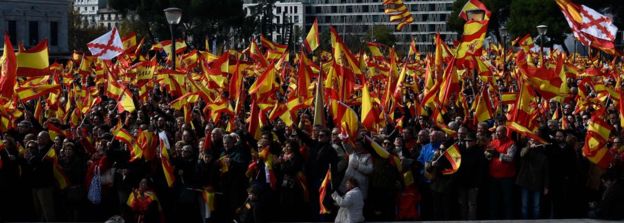
Why is the Far-Right on the Rise?
The scarecrow of “populism” has been frequently placed into a narrative that is also dear to liberal intellectuals and politicians. According to this narrative, the rise of the “populist Right” owes to the putative support it has enjoyed from white workers and more generally from the “native” plebeian elements of European societies. Despite the blessings it delivers, the story goes, the train of development and integration that Europe has been travelling on has left some people behind, exposing them to the propaganda of “ethno-populists”. In a recent article Aaron Winter and Aurelien Mondon have done a great job detailing that this line of explanation is both untenable and class biased. In the last analysis, its essential function is to stigmatize the working classes for political immaturity, as they are consistently being represented to be “carried away” or “duped” by demagogues. Whitewashed, at the same time, are the undemocratic structure of the EU as well as the role of the political, economic and technocratic class in charge. At best, this liberal discourse sustains a lukewarm drive for reform, which is supposed to include the “left-behinds” and, consequently, exorcize the twin ghosts of populism and nationalism.

As a corrective to the idea of a plebeian mass support, Winter and Mondon convincingly argue that the growth of the far right is spurred to a considerable degree by mainstream media. The relation does not necessarily or mainly concern open support, it has more to do with the mainstreaming of the far right agenda: the mass media across Europe are not only giving platform to the nationalist and xenophobic rhetoric of far right parties, at the same time they have been systematically promoting and inflating issues that are conducive to the spread of far right politics, like the “refugee crisis”, “the immigration problem”, “Islamic terrorism”, “criminality” and “anomy”. This, however, must not be taken to mean that the phenomenon (along perhaps the parallel decline of the far left) is little more than a media bubble. For that would downplay the historical, political, social, economic depth of the current crisis, without which neither the far right nor the far left could have emerged out of the political margins. As the recent Euro-elections ratify, a salient aspect of this ongoing crisis concerns political representation, in particular the decline of the two political traditions that have monopolized national government in western Europe after WWII and largely engineered the EU project: the moderate (liberal, conservative, Christian-democratic) Right and the social-democratic Left. While elitism, corruption and a detachment from social reality may have played a role, they do not suffice as explanations for the decline of the parties that belong to these two great political traditions. Instead, it is necessary to take also into account their growing inability to uphold the mediating role between actuality (how things are) and ideality (how things should be), whose tension has nourished modern democracies from their birth.
The Waning Promises of Parliamentarism
Every social formation necessarily represents itself under the light of justice, that is, as a historical form that crystalizes or moves towards the right order of things. In the dynamic context of modern societies, and buttressed by the grievances and instability that phenomena like inequality, systemic exploitation, exclusion, marginalization, and destitution generate, the affective gap between actuality and ideality acquires an endemic, constitutive character. In this context, political parties have taken up the task of promising the best way to bridge this tensional gap, with parliamentary politics serving to promote different programmatic visions of justice through peaceful means and legally regulated procedures. It is in this sense that the mediation of the gap between actuality and ideality is flagged as a key dimension of modern democracy, next to legitimizing governmental power and organizing political competition in a consensual manner that forestalls civil conflict.
In these terms, the social-democratic left and the moderate right have been offering two hegemonic political alternatives, while both respecting the fundamentally sound (or more strongly, just) institutional structure of the modern democratic state. Of course, and here we move closer to their crisis, the ideological and political traits of these political traditions did not remain static. Far from it, they have merged towards the “center” and jointly rode the bandwagon of globalization under the aegis of a seemingly triumphant capitalism. In the context of the “post-democratic consensus” that transpired, political competition increasingly took the form of rivalry over efficiency. The best that the “new” Center-Left and Center-Right could promise was optimal management, i.e. that they are the most capable administrators of a historical process hailed for leading towards a cosmopolitan, prosperous and technologically advanced future. A pertinent way to conceive the European Union is as one of the salient forms of this new international order.

For millions of its inhabitants, though, Europe was not living up to the expectations nor did they enjoy all the fruits of the infamous “European values”. Expectedly, the many-headed crisis that came out in the open since 2008 has intensified the gap between how Europe is and how it should have been according to the evangelists of European integration. From the “peripheries” of Europe, like Portugal, Spain and Greece, to countries that are considered its core, like France and Italy, the ideal of a civilizational unit moving towards political unification and economic prosperity was foundering in the rocks of indebtedness, unemployment, austerity and a deeply uneven concentration of power and wealth within and among the member states. Moreover, since this tension is played immanently on the level of institutional forms, the dominant institutions of European social formations could not remain untouched. One such institutional form is precisely parliamentary politics and its leading parties. In line with the moral panic liberals tend to bring whenever trust towards parliamentarism totters, initially the prevalent reaction from below was not to fall for aspiring Bonapartes but to fight for a “real democracy”. Much more than positing a demand through the formal circuits of the state or prescribing an ideal that is to cure the ills of this world, an international movement flourished that set out to experiment how such a real democracy should be. From Plaza del Sol in Madrid to Syntagma square in Athens, popular assemblies sprung which, along with declaring their opposition to austerity, tried to reanimate the principles of equality and people’s power from empty formalities, which they have been largely reduced to in recent decades, into a lived, practical experience. It is too early to assess the legacy of the cycle of struggles at whose forefront stood the “squares-movement”. Yet, in the short-term, uprisings failed to produce institutions capable to act as organs of a new democratic regime or even to revitalize existing democracies. Likewise, they have failed to block austerity. And as it frequently happens after the regression of a popular surge of struggles, this double failure has opened the way to the far right.
Yet, liberal fears again notwithstanding, parliamentarism has not suffered the same fate as the parties that dominated it. Rather, once the first wave of popular mobilizations in Spain (with the Indignados), Greece (with the Aganaktismenoi) and every other country where anti-austerity movements emerged (e.g. Britain and Bosnia) ran out of steam (and indeed a similar pattern is repeated today with the Yellow Vests movement in France), parliamentary politics has reasserted itself and the rise of the far right is actually one of the mediums of this reassertion. For unlike the fascist movement of the interwar period (a difference that hasty identifications fail to register) the contemporary far right does not directly challenge parliamentarism. Instead, by channelling discontent in the formal conduits of protest-vote and by fostering hopes that their electoral victory will solve all problems, far right parties have served to shield parliamentary democracy from the critical attitude popular movements have shown towards representation and the potential of a more radical democracy that this critical stance carries. This is not to exclude the possibility of a more authoritarian turn, since this is arguably an immanent potential of the far right. But we are not there yet, and the more the threat it poses to democracy is inflated, the more the role of the far right in augmenting the existing undemocratic structure of European states is downplayed.
Neo-Archaic Visions of Past and Future Glory
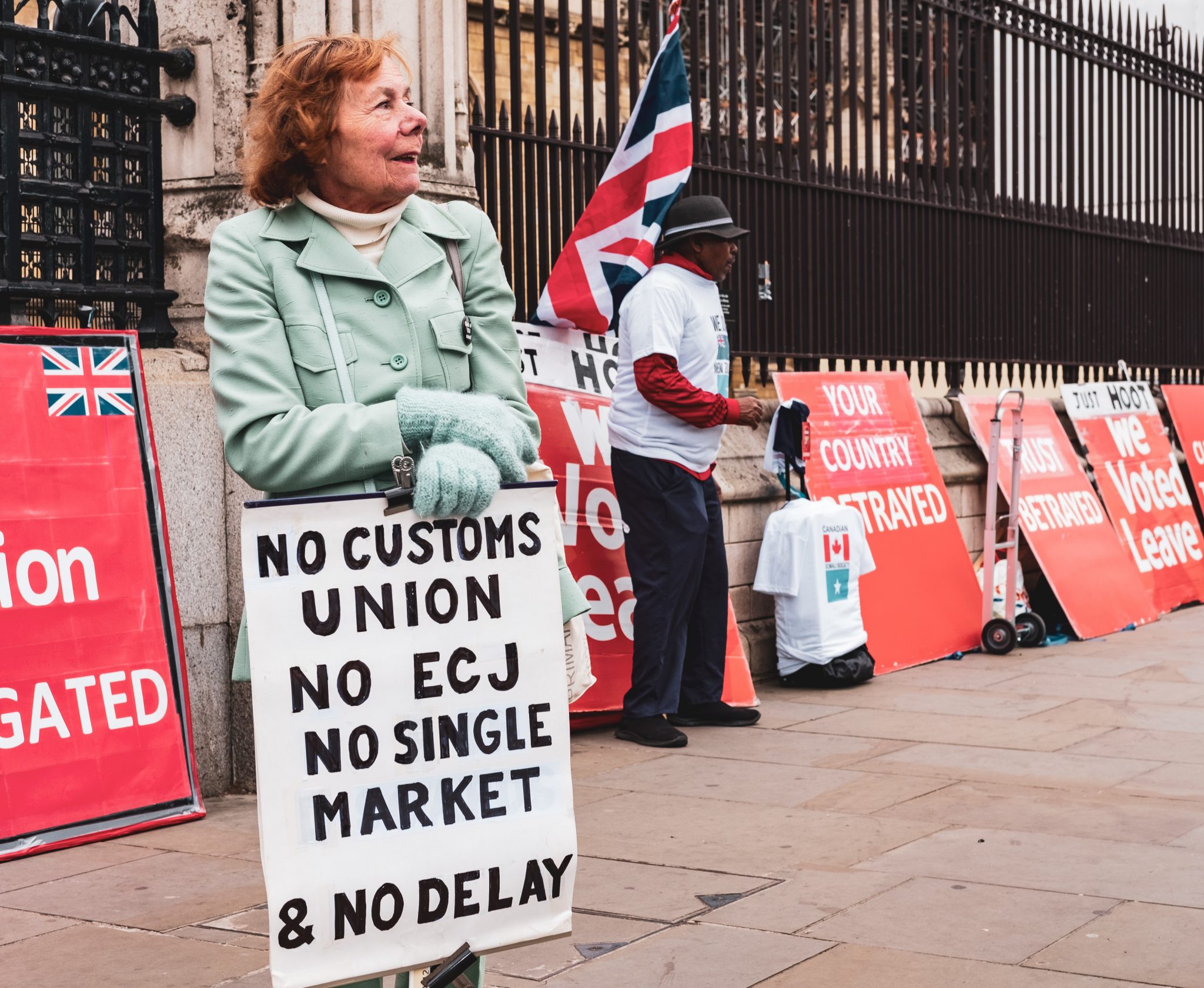
While the crisis of political representation may be an important factor in the rise of far-right parties, it is not the sole one; the decline of one form does not automatically bring the rise of another, as the poor performance of the radical left testifies. Clearly, far right parties say something that sounds attractive to many of those disillusioned with traditional parties. Schematically, at the center of the far-right’s propaganda (and the same holds true for similar trends outside Europe) is a reassertion of the nation state as the effective solution to the problem of justice, i.e. the problem of giving to a social formation (or even life at large) its proper form. For if this problem at its heart contains the aforementioned tension between actuality and ideality, the far right prescribes a strong, protectionist and ethnically homogeneous nation state as the best form for bridging the gap between how things are now and how they should be.
Political projects do not emerge in a historical void and the apparent success of this key idea has been certainly boosted by real sociopolitical trends. On the one hand, the internationalization of capital has generated industrial wastelands inside Europe as well as facilitated the production of polyethnic societies through flows of immigrant labor. At the same time, the European Union has served to undermine whatever elements of popular sovereignty existed in favor of a centralized, bureaucratic structure of power. In this context, precarity, insecurity, anger, disenfranchisement have variably affected segments of the working and middle classes throughout Europe. Precisely, the far-right steps in to mediate these affects, shape them and channel them towards a conservative (nay reactionary) and nationalist direction. The populist trope of elite/people is fused with a nationalist and racist discourse in order to produce a singular imaginary threat, the “foreigner” (in Brussels, in the ghettos, outside the borders) and a single cause for all that is wrong today, the subversion of the national community. In this way, the far-right promises on the one hand to give back to native workers their dignity and on the other to protect the privileges of the middle classes but also, let’s not forget, the profits of national capitalists. Overall, by mobilizing the power of the familiar, the far-right acts as a vector for the reconstitution of a closed, national body.
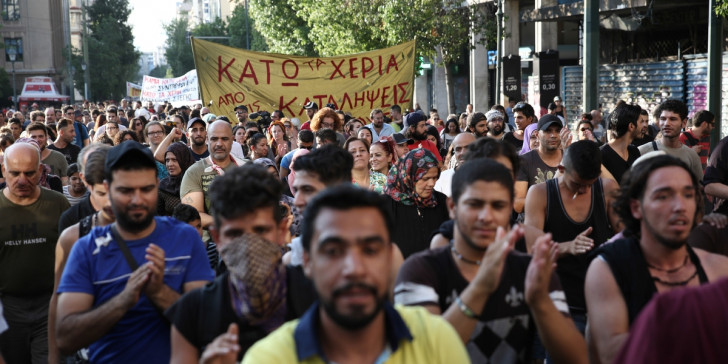
Looking Forward, Looking Left
If the specter of masses assembling behind nationalist banners appears to be fleshing out in front of our eyes, a few years ago the prospect of popular mobilizations acting as engine for radical change also seemed to be on the agenda. The radical Left in its turn promised to play a catalyst role by entering a sort of dialectic relation with grassroots movements: joining them in the streets but also channeling them towards the existing state with the hope to democratize it. A trend certainly existed: SYRIZA in Greece, Podemos in Spain, a little later the leftwing turn of Labor in the UK; even in the previous European elections an identifiable presence was registered at the left of social democracy. But, instead of opening new horizons to popular movements, leftist parties practically served to curb them. Thus, if the booming fortunes of the far right are based to a considerable degree in their capacity to mobilize the power of the familiar, the decline of the radical Left has something to do with its failure to harness the energies of the new. For sure, the Left may also have failed to draw from its own tradition and assert effectively familiar forms it has once helped consolidate, above all, welfare and labor rights. But, unlike the far-right, a leftist project cannot base its success on a neo-archaic assertion of old forms. The promise that the Left carries can only be transformative. Even those things that deserve to be defended need to be integrated to a politics that responds to the problem of justice not by evoking an idealized past but by pointing forward towards a different future. Naturally, this is far more difficult, for such a future cannot simply be posited ideally, it needs to be built through the forms that develop today. The combined effect of systemic inequality and exclusion, endemic psychosomatic pathologies, mass population displacement, geopolitical competitions and environmental degradation poses severe challenges and the odds may certainly look adverse if not grim. But when were the odds ever really in favor of leftist projects? To see in the material reality of present injustice and in the multiform resistances against it the seeds of a new justice is a necessary quality for a radical Left worthy of its name.
___________________________
George Sotiropoulos holds a PhD in Political Theory and currently teaches and is a researcher at the International School of Athens. His book, A Materialist Theory of Justice: The One, the Many, the Not-Yet, is available now. He is a member of Void Network
source: https://medium.com




